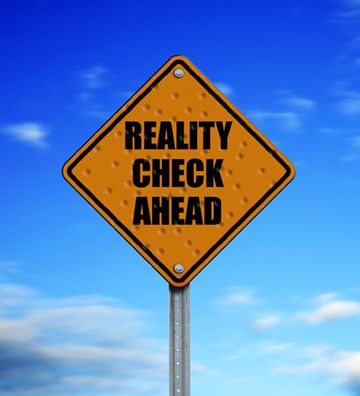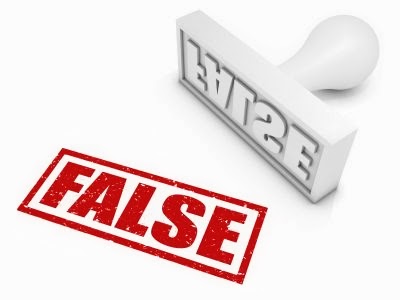Live Trading Will Teach You More than Demo Trading
 I’m all for people having a demo account to practice their trading strategy on. However, I’ve got about 15,000 students and the common denominator is that people stay on their demo account too long. Eventually, they turn profitable on their demo account and have amassed solid screen time and experience, but then they start trading a live account and quickly begin losing money. This article is going to give you some insight into why they do this and how to avoid it, which will hopefully help you avoid it too…
I’m all for people having a demo account to practice their trading strategy on. However, I’ve got about 15,000 students and the common denominator is that people stay on their demo account too long. Eventually, they turn profitable on their demo account and have amassed solid screen time and experience, but then they start trading a live account and quickly begin losing money. This article is going to give you some insight into why they do this and how to avoid it, which will hopefully help you avoid it too…
Demo trading certainly has its place, don’t get me wrong. But at the end of the day, if you don’t jump in and get your feet wet, you’re never going to develop the necessary mental skills to succeed in the market. Just like a pilot cannot live his or her life in the flight simulator and a doctor cannot stay in the practice lab forever, you cannot stay on a demo account for too long if you want to succeed at real-world trading.
Demo accounts are not the same as live accounts
Demo accounts are only simulations, in other words, they aren’t ‘real’ and they don’t exactly replicate live trading conditions (obviously, that’s why there called ‘demo’ accounts). More specifically, demo accounts often have different prices, order fills, stop out levels etc. You’re never going to get the same ‘perfect’ experience on a demo account like you will on a live trading account.
So what does this mean for you? Quite simply, it means demo trading will not teach you as good or as much as live trading will. If your end goal is to trade consistently and make real money, then you need to start trading a live account before too long. Once you have learned an effective trading strategy you really only need to practice it on a demo account for one to three months before trying live trading.
Important note: Just because I am saying you should get your feet wet and try live trading after one to three months does NOT mean you should go risking a lot of money, even if you have a lot to risk. I STRONGLY recommend you ease into live trading by risking only a dollar amount that you literally do not care if you lose or not. Especially when you first start trading live, it is critically important that you start with a very small dollar-per-trade risk, because you need to get comfortable with your broker’s trading platform and how it functions on live account vs. demo account, among other things.
Eventually, as you build experience and confidence with small amounts, you can increase your risk per trade to a dollar amount that matches your trading ability and risk tolerance. It’s also important to note that these dollar-per-trade risk levels will vary significantly from trader to trader, there simply is no ‘blanket’ risk management system that will work perfectly for every trader, despite what you may read on other websites. This is why I am a proponent of measuring your risk in dollars, not percentages or pips; because it gives you a very intimate and personal way to determine what you’re personally comfortable with potentially losing on any given trade.
At some point, you gotta force yourself to move to a live account, don’t be trapped on demo forever. Don’t train yourself on false pretenses. Convincing your brain that you’re good on demo, only to move on to a live account where your performance sinks like a rock, is not a productive or wise thing to do. This underscores the question I’ll answer in the next section; why do people trade well on demo but then start losing money when they go live?
False pretenses breed false confidence
 As we discussed above, demo accounts don’t function exactly the same as live accounts, and they certainly don’t build ‘real’ mental trading skills like a live account does.
As we discussed above, demo accounts don’t function exactly the same as live accounts, and they certainly don’t build ‘real’ mental trading skills like a live account does.
The main reason traders tend to do much better on demo than they do on a live account, is simply because on demo, they don’t have emotions clouding their judgment or influencing their trading decisions…since there simply isn’t any emotion involved.
There is no attachment to the money in a demo account, even if you try to trade a demo account with the same amount you’re planning to trade live, and you exactly stick to your trading plan, it still won’t feel the same. Traders often complain of sweaty palms and a racing heart beat the first time they trade a live account, it’s because the gravity of the situation finally sets in and it starts to actually change both their mental and physical state of being.
It’s not always apparent to people that trading ‘paper money’ is the main reason they’re actually making money on their demo account. Some of the things that the no-consequence world of demo trading causes traders to do include:
- Loading up on position size beyond any rational or logical size that you’d ever be able to trade on a live account
- Developing confidence and abilities under partially false circumstances.
When you trade real money you feel the emotional ups and downs, when you trade a demo account, you don’t. Therefore, the abilities and confidence you develop on a demo account will not necessarily help you on a live account, and in fact they can actually hurt you.
Traders have a tendency to move on to live account trading with false-confidence and high hopes built on the false-pretenses of demo trading, this can cause them to immediately start losing money on a live account because they don’t fully understand the risk involved, since there really was no risk on the demo account.
The sooner you move to a live account the better it is for you, you don’t have to ‘load up , start small and build up, then you will gain an understanding of what the real world trading is all about.
A pro football player on a professional team had a bad season and he goes back to training, but he never gets a chance in a live game again. How is he gonna get his ‘real’ game back? The answer is, he won’t, if he doesn’t get back out and practice in real games.
A doctor will never get real experience if he or she never operates on a real patient. If a doctor makes errors he or she may go back to training, but if they don’t get back working with real patients, they’ll never get the real feel back.
How to get started properly on a live trading account
If you’re playing a game of poker for fun, without any real money involved, you’re going to think and feel differently than if you are playing with a $500 buy in. The same thing applies to trading; you will think and feel differently about trading on a demo account vs. trading on a real account. Thus, if you get good on a demo account it doesn’t necessarily mean you’ll trade well with your real, hard-earned money on the line. What you learn on a demo account will not matter if you can’t trade equally as good on a live account. Clearly, making the transition from demo account to live account is important, and you need to do it sooner rather than later, but there are some important things to consider before you being trading live…
In what might seem like an ironic twist, the ‘key’ to trading well on a live account is recreating the same type of detached mental state that naturally occurs when you’re trading a demo account. While I don’t believe it’s ever 100% possible to be fully detached from live your trades like you are on a demo account, I do think you can get pretty darn close…
Here are some tips on how to lighten the emotional impact of live trading…
• Start small and increase lot size only as you gain real-world / live account trading experience and confidence and your equity curve begins trending higher. Even starting with a small risk level will help you get the feel and skills you need to trade a live account, you don’t need to jump into live trading risking large portions of your trading account, and you shouldn’t! Don’t increase lot size too soon, this is a HUGE mistake that many traders make as Marty Schwartz discussed in my Market Wizards article.
• Accept that losing is part of trading, and learn to deal with it through proper money management. The fact that you will have losing trades does not truly set in until you start trading a live account, because you don’t feel the losses on a demo account.
• Learn and start practicing a simple trading method first – I suggest the price action method that I teach in my trading course. But whatever method you ultimately go with, be sure you can confidently say you feel like you know it inside and out before you try trading it live. Don’t just totally ‘wing it’, you DO need to use a demo account for one to three months as I mentioned earlier, but beyond that you’re probably doing yourself a disservice by staying on demo. Sooner, rather than later, you’ll need to make the decision to jump in and start ‘swimming’, because if you don’t learn to swim in with the ‘big fish’, you’ll never have what it takes to stay afloat in the ‘ocean’ that is real-world trading.
You can download a demo of our preferred forex broker platform here.






Demo has it’s place but can be dangerous if traded to long at some point you have to get your wet feet one can wad in the water or go swimming.
It has happen to me I once traded demo way, way to long and I think it did more harm than good.
Until I started on a live micro account to develop mindset, discipline, and confidence the micro account live trading really help.
Trading is all about mindset, patience, discipline, and risk management.
Everything said here by Neil is right on point. I’ve managed to summarize it all thus, we tend to think that demos are used to test strategies but not two most important things required to succeed at trading which actually comes first and foremost before strategies but it’s mostly ignored in demo – mindset and discipline. I’m sure demo can be used to hone all three: mindset, discipline and strategies by simply being conscious of cultivating all three in demo. On mindset, you must simply realize that the same mindset and coolness that you have during demo trading must be transfered to live. I noticed I detach from the value of the money in demo and same must be the case in live – detach from the money. After all, don’t we trade with risk capital that we can afford to lose?
Thanks for your inspiring articles.
Good day Nial
Thank you for a best teaching of demo account vs live account, I’m following you on your teaching all the times. I received so many calls concerning me to start live without even undergo demo account to have knowledge of trading. Thank you again with your teachings.
Thabo Ntshisi RSA
good i love this thanks
Great article Nial, although i use demo for new strategy testing, live account trading has been very important to seal that confidence in my physcology.
EXACTLY!
Thank you, Nial,
Being an engineer, I took a look at the Forex market six years ago and decided “it can’t be that hard” (buy/sell/exit) so I proceeded to “train” myself and became a “Forex consumer” of trading methods, special indicator systems etc. After demo-trading a while, I opened a $5k trading account and lost it all, rather quickly. I demo traded and bought mentorships and opened a $10k trading account and lost it all. Though I have not traded live for about four years, I have been studying and demo-trading and using a simulator. I think that fear of losing is keeping me from trading live. I opened a $2k Forex account recently and plan to begin using it within the next six weeks, trading for dimes an pennys (I want to finish my trade plan and put it to the test on the MT4 strategy tester first).
I feel that my last few years have largely been wasted by “dancing around” the issue of live trading due to fear. I believe that demo-trading is useless, given the advantage of simulated trading using a strategy tester; where you can trade several days worth of market data in an hour or so.
Thanks again,
:) Marv
frenky beat me to it – I found using a Micro account is the best half way house because it’s real money but not big money. So you do get to experience the emotions on winning and losing – and you certainly think twice before making a trade when previously in demo mode I’d have gone in regardless just to see what happened. I would recommend all your students go from demo to micro and progress from there when the novelty of the emotional rollercoaster has faded and you can make decisions based on the charts.
But you beloved something else in “Trade like The Market Wizards” article.
Dr. Van K. Tharp
The top traders that I’ve worked with began their careers with an extensive study of the markets. They developed and refined models of how to trade. They mentally rehearsed what they wanted to do extensively until they had the belief that they would win. At this point, they had both the confidence and the commitment necessary to produce success.
When I read the above quote, the first thing I thought of was demo trading and learning to master your trading strategy before you try to trade it live. People who can apply more patience and discipline in learning and mastering their trading method before they go live will naturally have a far easier time making money in the markets than those who just jump in head-first with no plan of action.
Hi Nials, never a truer word said, good info and advice. W
If you can’t even make money in a demo account, then I wouldn’t even consider going live. It’s simply too risky, regardless of how much, or how little, money you may be risking. That is the value of practicing for longer in a simulator, you get to find these things out before blowing real money, like I did a few years ago, but thank you for writing the article.
This is very true. When I started trading live my expectations changed almost immediately. I realized and I felt the real loss of money and this caused me to trade with totally different approach: more cautious and with a lesser risk. This is dangerous if someone trade demo too long having profits, and then shift that expectations on a live account. Great lesson!
Good information as usual Nial.
Demo’s are great to measure the ‘quality’ of your trades against your trading plan(s). Only when you are consistently trading to your plan (with demo equity growth of course) would one even think about trading live. As you say this must be small investment as its all still part of the training – each trade much be analyzed and measured against your plan as with demo. Only when one is consistent does one move on to building their investment pot.
It is critical to measure every facet of every trade ie state of mind , analysis of markets/price action. money/risk management, execution of entry and exit, state of mind during and after the trade etc. keep improving
Hi Nial, great article as usual. One thing I would raise is, that in some articles you recommend to stay on demo account until one manages to be profitable for three months where as in this article your recommend to stay on demo maximum three months.
I must admit that I agree with the second (this article) version where small ammounts should be involved when trading live. Because eventhough there is a small amount involved it still efects one´s emotions just as you describe and it´s the most important part of the game.
many thanks
Michal
I agree with Nial. At some point, I have mentioned that demo trading should be banned. It creates “false expectations” the only reason to demo an account is to test (and maybe) the execution and to check the spreads. Still, a live environment is better.
Great Article!
Jose,
As I mentioned in the article, demo trading does have it’s place. It’s just that it can be over-used and it unfortunately it often is. I do recommend beginning traders demo trade for 1 to 3 months before trying a strategy on a live account, but longer than that is really not necessary or useful. However, as I mentioned in the article, when you do start live trading you should start with very very small amounts, just to build up some experience with live trading and get your feet wet.
Thank’s, i just started price action strategy this week, i hope i can countinue on demo for the next 2 month before going live. thanks and happy trading.
Question: How about after 3 months or so as you say, you ease into a live account with taking some trades on live account and some on demo. Would that work, in your opinion to ease one onto live trading? Thanks
Traders need to experience the feeling of trading a live account and real money as soon as possible. The idea is that you can ‘train and practice’ forever but it won’t ever be the same as the ‘real thing’. Traders develop false confidence by staying on demo accounts too long, and they often experience serious problems making the transition from demo to live account, the conditions and emotions are very different. The sooner they shift from ‘practicing’ to ‘real trading’ the better. Traders can start a with smaller positions and increase as confidence grows.
i also tried trading both demo and live, it jus never worked for me. as Nial said, demo doesn train you well emotionally and even the risking part. I think its jus better once you are on live, stick to it and risk less. you will be amazed how easy things get once you are comfortable “emotionally”
thank you Nial for all your help
Thats a big true Nial. Even micro account will teach every trader more then multimilion demo account… I know what I am talking about… but most important is never give up…
great article